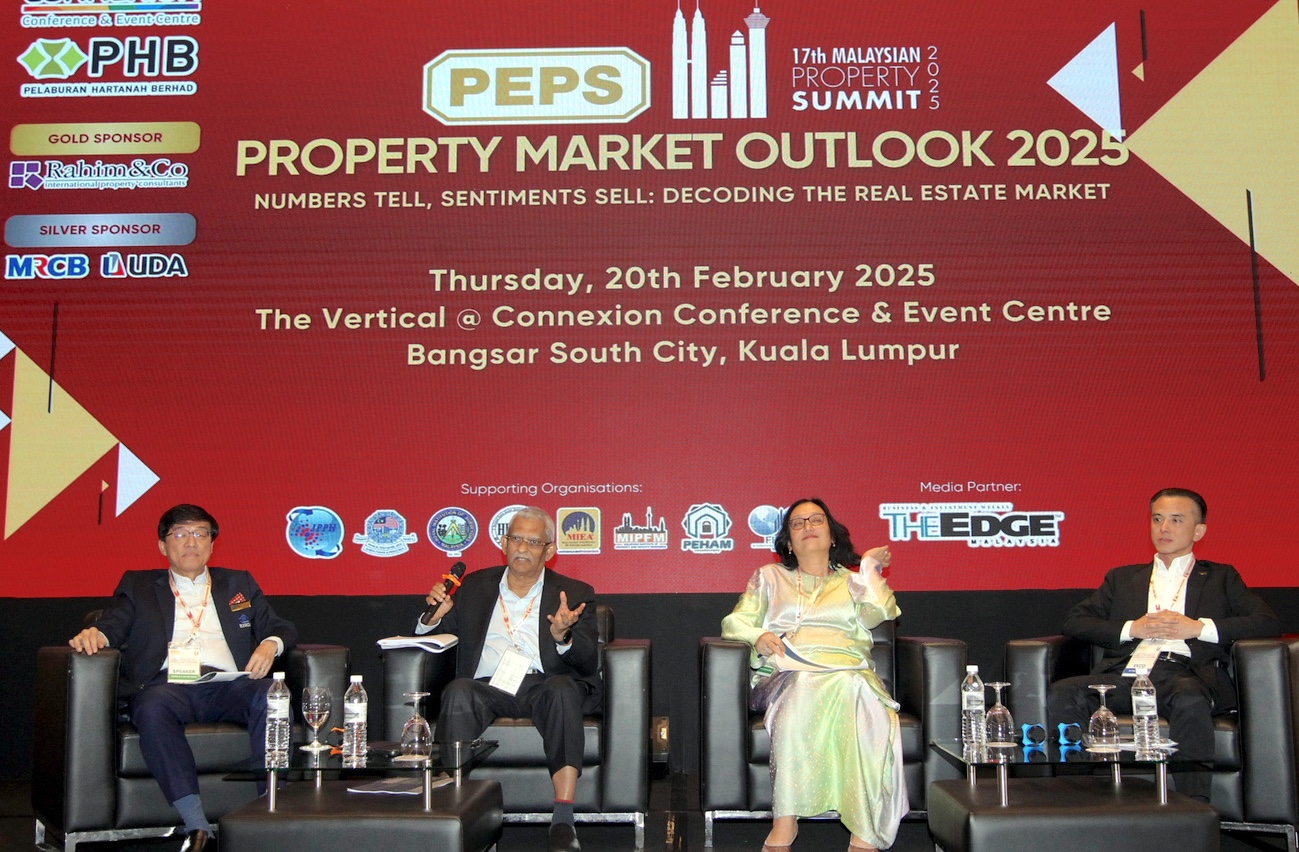Malaysian property market poised for steady growth in 2025

Source: enanyang.my
The Malaysian property market is expected to see moderate growth in 2025, with property prices projected to rise between 2% and 5%, according to the Association of Valuers, Property Managers, Estate Agents and Property Consultants in the Private Sector Malaysia (PEPS). This forecast was shared at the 17th Malaysian Property Summit held in Kuala Lumpur, highlighting strong domestic housing demand and rising construction costs as key drivers of this growth.
PEPS past president and CBRE | WTW Malaysia adviser Foo Gee Jen emphasized that the anticipated single-digit price increase is a healthy and sustainable trend compared to the double-digit surges seen in previous years. “I foresee a 4% to 5% increase in property prices this year, primarily due to escalating building costs,” he said. This gradual growth aligns with current economic conditions and avoids the volatility of past property booms.
The growth rate, however, will vary depending on location. Sulaiman Saheh, the event’s organizing chairman, noted that certain well-located developments could see higher price increases, while others may experience more modest growth. “The old days of double-digit growth are unlikely to return, as they are unsustainable. A 4% growth rate may not excite investors, but it is healthy and aligns with bank interest rates,” he explained.
The property market’s recovery momentum, which began in 2024, is expected to continue into 2025, albeit at a slower pace. Sulaiman highlighted a 6% year-on-year increase in property transactions during the first nine months of 2024, with strong performance continuing into the fourth quarter. This steady growth reflects a resilient market supported by domestic demand and strategic infrastructure developments.
Infrastructure projects such as the East Coast Rail Link (ECRL) and Pan Borneo Highway are expected to catalyze growth in underdeveloped regions like Kuantan, which has already seen increased property development activity in recent years. These projects are likely to attract investment and spur economic activity in areas beyond traditional property hotspots like Kuala Lumpur, Johor Bahru, and Penang.
Addressing challenges in the market, Foo Gee Jen called for a review of the Bumiputera quota policy to reduce the number of unsold properties. He suggested that subsidies should be more targeted to assist those genuinely in need, rather than providing blanket support. “If someone can afford a property priced at RM1 million, they do not need a subsidy. The policy should focus on helping those who truly require assistance,” he said.
PEPS president Subramaniam Arumugam underscored the importance of adapting to the evolving economic landscape, shifting consumer behavior, and new policies to ensure the property sector remains vibrant and competitive. Similarly, Abdul Razak Yusak, president of the Board of Valuers, Appraisers, Estate Agents and Property Managers (BOVAEP), emphasized the need to embrace change and interpret its impact accurately to maintain the market’s appeal to international investors.
Themed “Numbers Tell, Sentiment Sells: Decoding the Real Estate Market,” the summit featured discussions on various aspects of the property market, including economic trends, commercial and retail market dynamics, and the prospects of industrial and residential segments. The event highlighted the importance of balancing social obligations, economic realities, and market forces to foster sustainable growth in Malaysia’s property sector.

